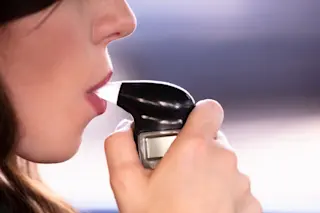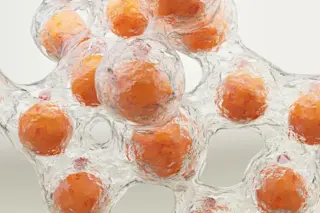The news just keeps getting better about vitamin D. Earlier this year, studies linked proper levels of the "sunshine vitamin" to a decreased risk of diabetes, heart attacks, and cancer; that's in addition to the previously understood role that vitamin D plays in keeping bones strong. Building on all these findings, a new study suggests that maintaining proper levels of the nutrient can even stave off death from heart attacks and other causes. Researchers point out that they haven't yet demonstrated a causal relationship, just a connection.
The study's lead author, Dr. Harald Dobnig of the Medical University of Graz in Austria, said the results don't prove that low levels of vitamin D are harmful "but the evidence is just becoming overwhelming at this point" [AP].
Researchers aren't sure what the connection is but they speculate that the nutrient may play a role in regulating the immune system, and may ...














